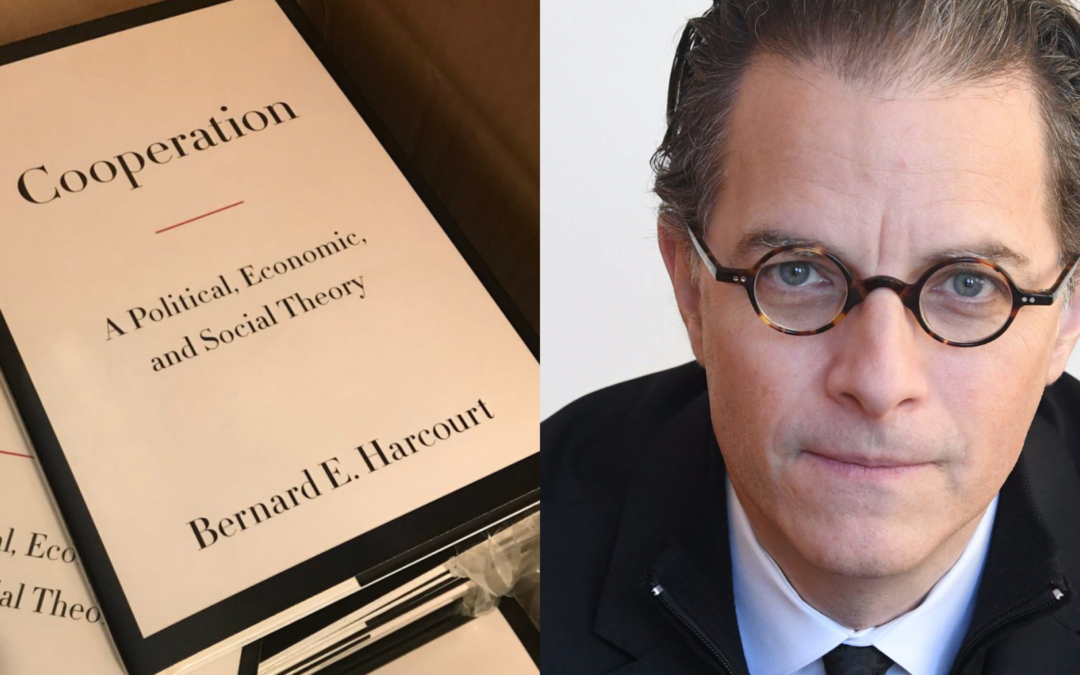Cooperation: A political, economic and social theory, Bernard E Harcourt, Columbia £28
By Miles Hadfield
Co-operative News 22 March 2023
In recent years there have been a number of books spelling out co-operation as a solution to the world’s ills. Here’s another, backed up by some fascinating research and academic analysis, proposing a wholesale reorganisation of the world on co-operative lines.
Harcourt sets out his stall in a similar way to the those other books: he describes the world in terms wearily familiar to anyone who can still stand to watch the news: a story of rising intolerance and autocracy, fuelled by political division, economic turmoil and environmental destruction. And he offers a pithy, potted survey of the co-op movement – one which holds few surprises for keen co-operators but is still fresh and insightful enough to hold their interest.
From this base, he sets out his ideas for taking the co-op ideal and placing it “at the heart of political, economic and social paradigm”. To this end, he does not find favour with all forms of co-op; he argues that some consumer co-ops have unfavourable labour practices, some retail co-ops drive down costs to boost profits; and some nonprofits have an ‘autocratic management style’.
Taking his preferred examples of the movement, Harcourt draws up his case for “cooperism” – a political theory grounded on recognition of our interdependence, which, he argues, can ensure equitable distribution of wealth.
“The idea of cooperism is not just to extend forms of co-operation to other domains or increase the number of cooperative enterprises … but to concentrate forms of co-operation so that the more beneficial forms aggregate and build on one another.”
For instance, he argues that insurance mutuals should support the operations of producer co-ops. It echoes calls from within the co-op movement to observe principle 6 more widely – for instance, at the recent conference of the Association of British Credit Unions, there were calls for credit unions and co-ops to join forces to drive community change; and at the Co-operative Retail Conference, Group CEO Shirine Khoury-Haq challenged delegates to find a better way of working together to create a co-operative ecosystem.
Harcourt says this would extend ideal of participatory democracy to all areas of activity; crucially, he also says that it makes business sense, pointing to success stories like Isthmus Engineering and Manufacturing Coop of Madison, Wisconsin, which builds robotic components for machine companies; the firm has seen its growth increase after converting to a co-op model in 1982.
There’s a need to incentivise the co-op model to drive this transition – a debate raging in the UK at the moment, taking on a particular urgency in the case of retailer John Lewis’s hunt for capital. Harcourt suggests a number of regulatory ideas to change the playing field, currently skewed against co-ops, to their favour, from rules of incorporation to capital gains taxes. “It is extremely easy to design arrangements that favour co-operation,” he says.
He argues for the model as a way to protect democracy from the wave of autocratic ideas that are taking root around the world. Warning that the US system is a “young and fledgeling democracy that just barely withstood a stress test in 2021”, he says the co-operative idea is a route to a more ‘fair and equitable’ democracy, drawing on radical ideas from history like the Abolition Democracy of African American co-operator W.E.B. Du Bois.
Underpinning his case for a co-operative world, Harcourt sets out his political, economic and social theories of co-operation, with radical ideas including “the end of the punishment paradigm” when it comes to crime. Cooperism would “render obsolete the notion of enforcing the criminal law”, he says; instead, when someone deviates from the the norm, “others would likely interpret that as a call for care and assistance”.
This might seem very idealistic stuff – he accepts it would need “an incredible investment in and commitment to mutual care“ – but in a world where conventional models are fast running out of road, they’re ideas worth listening to.

